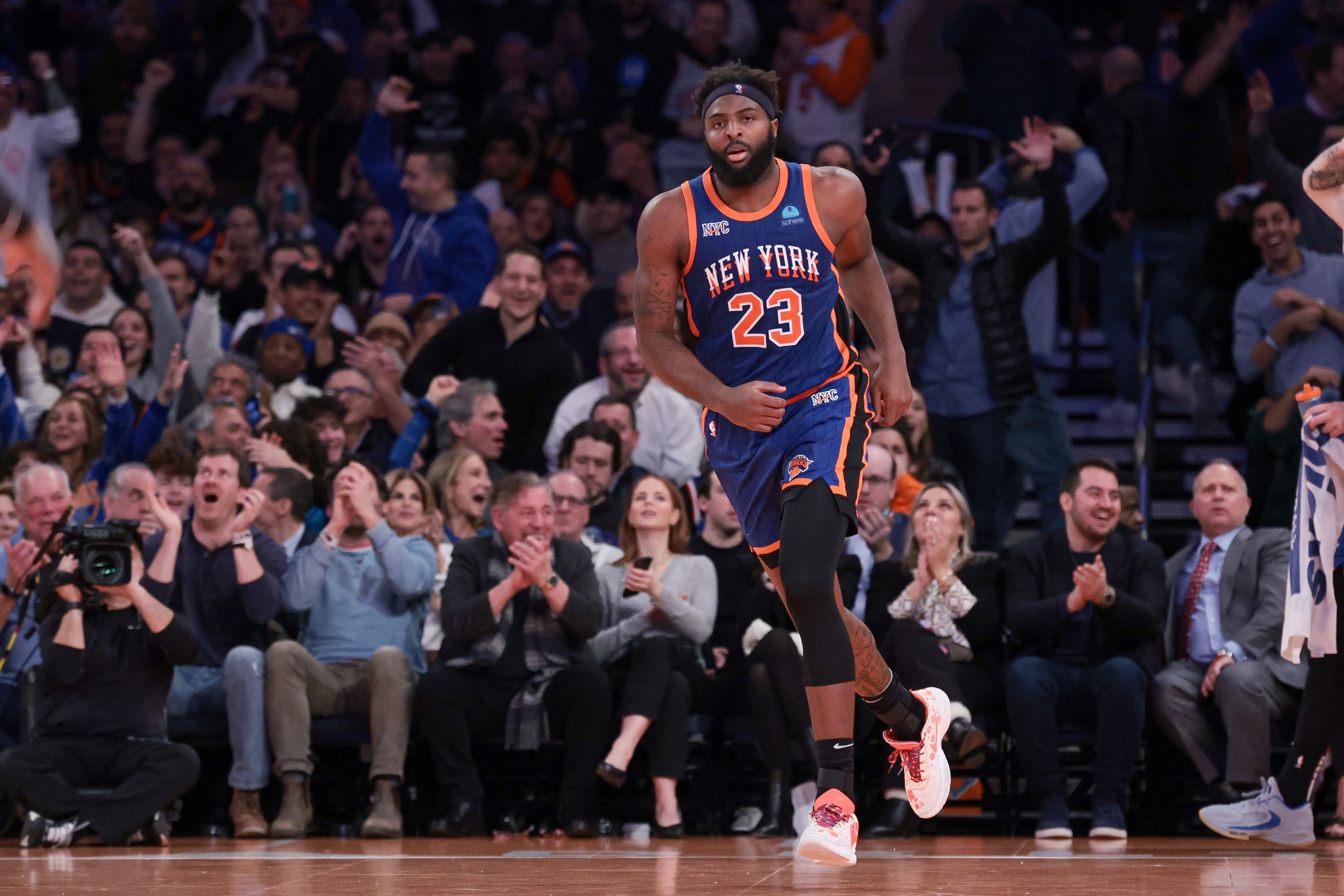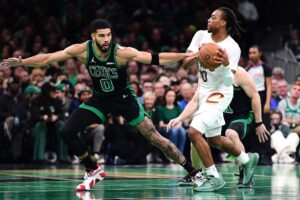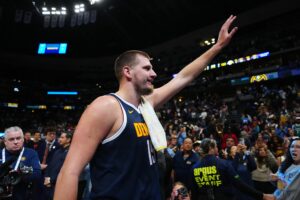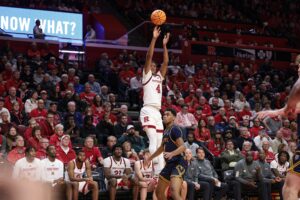The New York Knicks have been left scrambling by the recent Mitchell Robinson news.
Already having lost Isaiah Hartenstein in free agency, they’re now effectively on Plan C. In this case, that means starting one of Jericho Sims, Precious Achiuwa, or Julius Randle at center. Yet, while the Knicks have confidence in that trio, none of them have the traditional size that Knicks head coach Tom Thibodeau is fond of.
Consequently, New York could scour the trade market in an effort to land a starting-caliber center. Among their options, Charlotte Hornets center Nick Richards remains one of the most viable acquisitions.
Hornets’ Nick Richards On Knicks’ ‘Radar’ Amid Mitchell Robinson Injury
Richards “is someone the Knicks have had on their radar this offseason,” per The Athletic’s James L. Edwards III.
Edwards may have only made note of this because he was creating hypothetical trade scenarios. Despite that, this isn’t the first time that New York has been linked to Richards. In early July, the Knicks were rumored to be exploring trades for Richards and Utah Jazz center Walker Kessler. Discussions surrounding both centers eventually cooled off, but it’s still being suggested that Kessler’s a player the Jazz want to move.
Of the two, Richards is undoubtedly the better player.
Kessler is a rare shot-blocker, his blockish 7-foot-0 and 245-pound frame helping him turn away shots like a pretty girl at the bar. However, he’s a limited offensive player. He doesn’t have a low-post game nor is he a playmaker. He attempts to stretch the floor, primarily with corner 3s, but is just 5-of-22 beyond the arc.
Richards isn’t going take many shots out of paint, but he can knock them down. In fact, after four seasons, he’s 12-of-26 from the midrange. What’s really moving about his game though is his work as a low-post technician.
His footwork exemplifies the meaning of a ‘pivot.’ He can finish below the rim with hook shots and layups. He can play above the rim, catching lobs or simply finishing through his opponent.
Factoring in Richards’s rim-protection at 7-foot-0 and 245 pounds, there’s no contest. Frankly, he may even be better than Robinson. He’s not as dominant as either Kessler or Robinson an interior defender, he’s simply more dynamic while still being capable of standing sentinel in the paint.
What Would The Trade Look Like?
No matter how much the Knicks might want Richards, they still have to convince the Hornets to move him. With two starting-caliber centers, Richards and Mark Williams, Charlotte is in a better position than most to make such a deal. However, the lengths that New York went to in order to get Mikal Bridges had had a huge effect on their draft assets. Unfortunately for the Knicks, the Hornets’ focus is on drafting players to build their talent base.
There’s a possibility that Charlotte would accept a young player for Richards. In his article, Edwards suggests that player would be Miles McBride. To him, the issue is that McBride is too good to be moved for a potential backup. The real problem may be that McBride has little chance of ever being a starter in Charlotte.
Furthermore, the Hornets have shown that they’re willing to think outside the box. They did it when hiring Jeff Peterson as general manager. They did it when hiring Charles Lee as a first-time head coach. Charlotte even drafted a relatively unknown commodity, Tidjane Salaun, with their lottery pick.
Based on their team needs, a starting-caliber wing or center makes the most sense. The complication is that the Knicks can’t take back more salary in a trade than they send out. As a result, it wouldn’t be a straight-up swap. Combining the salaries of Achiuwa, Keita Bates-Diop, and 2024 No. 25 pick Pacome Dadiet for Richards and Thibodeau favorite Taj Gibson could work though.
Sims provides skilled but undersized replacement for Richards. Dadiet, a French player who could grow alongside Salaun, is a wing with starter-level potential. Bates-Diop, who New York landed in the deal for Bridges, is a veteran forward who can help teach the Hornets professionalism.






